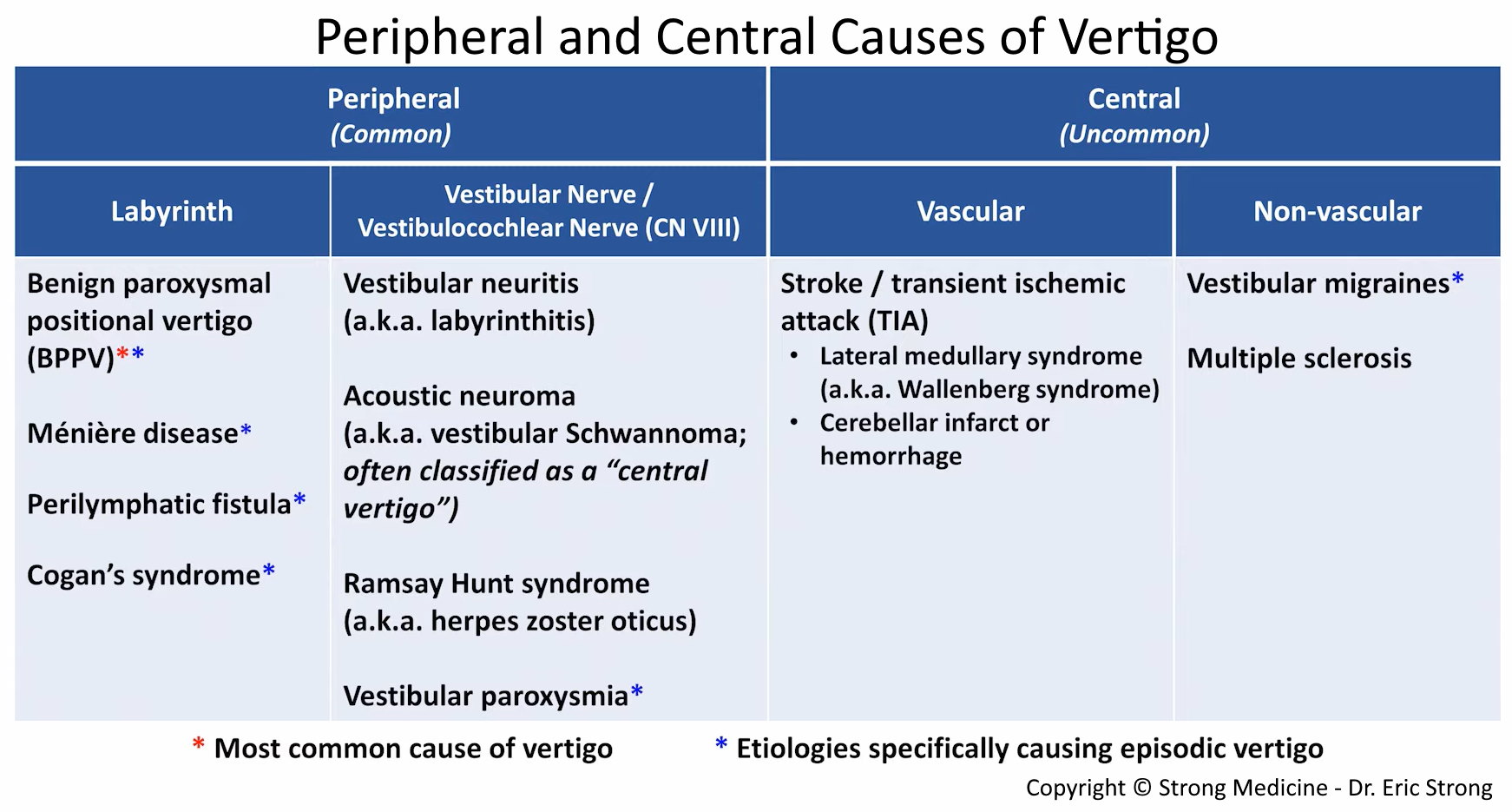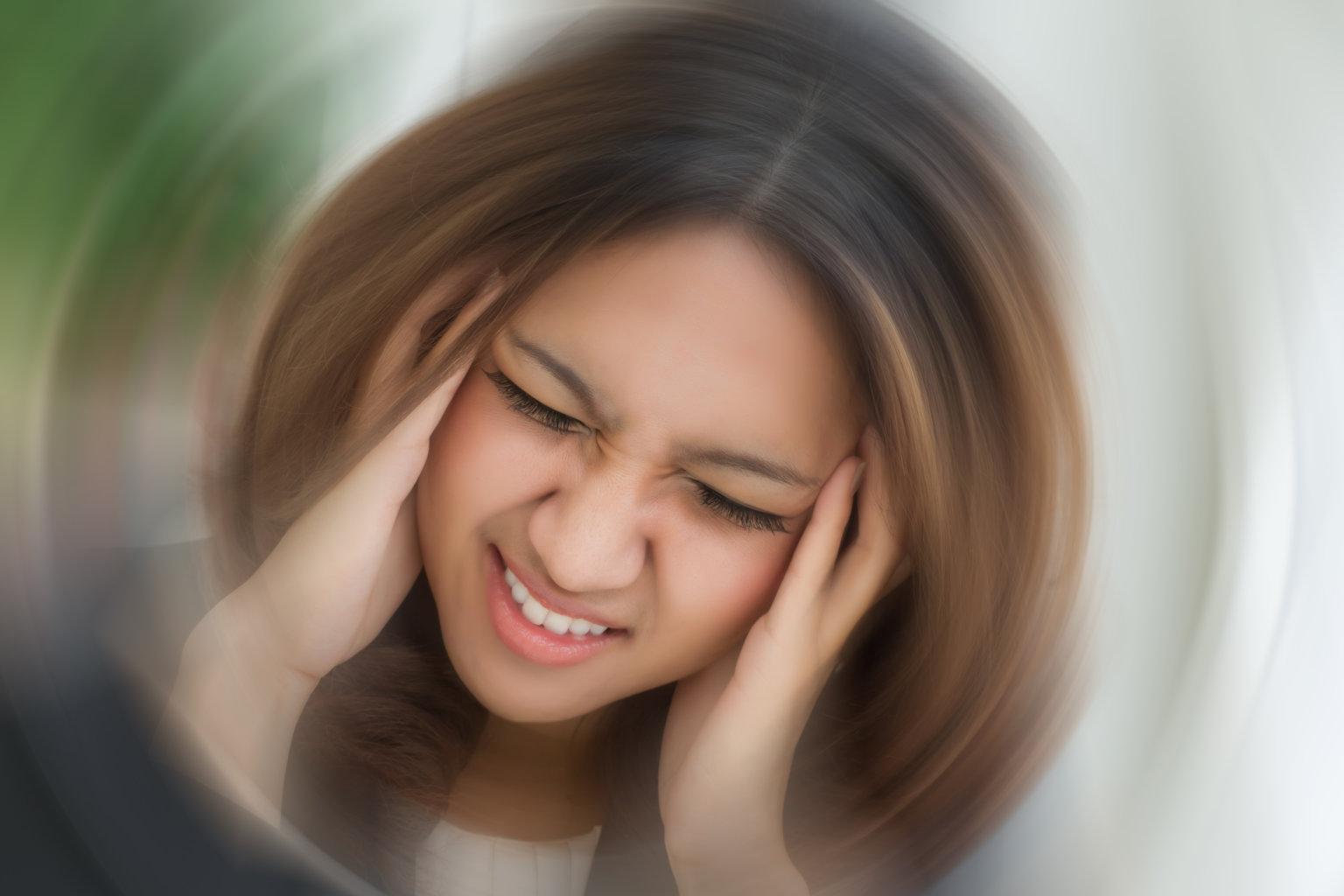Vertigo causes cures: This topic delves into the fascinating world of vertigo, a condition characterized by dizziness and balance problems. We’ll explore the underlying causes, effective treatments, and preventive measures to help you navigate the challenges of vertigo and regain your equilibrium.
Vertigo affects people of all ages and genders, with varying degrees of severity. Understanding the causes and cures can empower you to manage your symptoms and improve your quality of life.
Vertigo Causes

Vertigo, a sensation of spinning or dizziness, can arise from various causes. Common culprits include inner ear disorders, migraines, and certain medications.
The prevalence of vertigo varies with age and gender. Individuals over 50 are more susceptible, while women tend to experience it more frequently than men.
Inner Ear Disorders
Inner ear disorders, such as benign paroxysmal positional vertigo (BPPV), Meniere’s disease, and labyrinthitis, can disrupt the delicate balance system within the inner ear, leading to vertigo.
| Disorder | Symptoms |
|---|---|
| Benign Paroxysmal Positional Vertigo (BPPV) | Sudden, brief episodes of vertigo triggered by specific head movements |
| Meniere’s Disease | Episodes of vertigo accompanied by hearing loss, tinnitus, and a feeling of fullness in the ear |
| Labyrinthitis | Inflammation of the inner ear, causing persistent vertigo, nausea, and vomiting |
Migraines
Migraines, severe headaches often accompanied by nausea, vomiting, and sensitivity to light and sound, can also trigger vertigo.
Medications
Certain medications, such as antibiotics, anticonvulsants, and antidepressants, can have side effects that include vertigo.
Vertigo Cures

Vertigo can be a debilitating condition, but there are a number of effective treatments available. The best treatment for vertigo will depend on the underlying cause.
Medications can be used to treat vertigo by reducing nausea, vomiting, and dizziness. Physical therapy can help to improve balance and coordination. Lifestyle changes, such as avoiding triggers and getting regular exercise, can also help to manage vertigo.
Medication
There are a number of different medications that can be used to treat vertigo. These medications include:
- Antihistamines
- Benzodiazepines
- Calcium channel blockers
- Diuretics
- Motion sickness medications
The type of medication that is best for you will depend on the underlying cause of your vertigo.
Physical Therapy
Physical therapy can help to improve balance and coordination, which can help to reduce vertigo. Physical therapy exercises may include:
- Vestibular rehabilitation exercises
- Balance exercises
- Coordination exercises
Physical therapy can be an effective treatment for vertigo, but it is important to be patient and consistent with your exercises.
Lifestyle Changes
There are a number of lifestyle changes that can help to manage vertigo, including:
- Avoiding triggers
- Getting regular exercise
- Eating a healthy diet
- Getting enough sleep
- Managing stress
Making these lifestyle changes can help to reduce the frequency and severity of vertigo attacks.
Vertigo Symptoms: Vertigo Causes Cures
Vertigo is a common condition that causes a sensation of dizziness or spinning. It can be a very distressing experience, and it can significantly impact a person’s quality of life.
The symptoms of vertigo can vary depending on the underlying cause, but some of the most common symptoms include:
- Dizziness
- Nausea
- Vomiting
- Balance problems
- Tinnitus
- Headaches
- Blurred vision
- Difficulty concentrating
The severity of vertigo symptoms can vary from mild to severe. In some cases, vertigo can be so severe that it makes it difficult for a person to walk or stand.
Vertigo Diagnosis
Diagnosing vertigo involves a thorough medical history, physical examination, and specialized tests to determine the underlying cause. An accurate description of symptoms and a comprehensive medical history can significantly aid in the diagnostic process.
Medical History
A detailed medical history is crucial for identifying potential causes of vertigo. Healthcare professionals will inquire about symptoms, their onset, duration, and any associated factors, such as head movements, ear symptoms, or neurological issues. They will also review past medical conditions, medications, and lifestyle habits.
Vertigo, a sensation of spinning or dizziness, can be caused by various factors. If you’re experiencing these symptoms, seeking medical attention is crucial. Fortunately, there are effective vertigo treatment options available, ranging from medications to exercises and lifestyle modifications. By understanding the underlying causes and exploring these treatment options, you can regain your balance and alleviate the discomfort associated with vertigo.
Physical Examination, Vertigo causes cures
A physical examination typically includes a neurological assessment, including balance and coordination tests, eye movement checks, and a head and neck examination. The healthcare professional may perform the Dix-Hallpike maneuver to assess for benign paroxysmal positional vertigo (BPPV).
Diagnostic Tests
Various diagnostic tests may be employed to further evaluate the cause of vertigo:
- Hearing tests:Assess hearing function and identify any abnormalities that may indicate a vestibular disorder.
- Imaging scans:Magnetic resonance imaging (MRI) or computed tomography (CT) scans can visualize the brain and inner ear to detect structural abnormalities, tumors, or other lesions.
- Electronystagmography (ENG):Records eye movements to evaluate the function of the vestibular system and detect any abnormalities.
- Vestibular evoked myogenic potential (VEMP) testing:Assesses the function of the vestibular nerve and its connections to the muscles.
Vertigo Prevention
Vertigo, a common condition characterized by dizziness and balance problems, can significantly impact daily life. While some cases may require medical intervention, there are several preventive measures individuals can adopt to reduce the risk of vertigo episodes.
Lifestyle modifications, dietary changes, and avoiding certain medications can help prevent vertigo. Engaging in specific exercises or activities that strengthen the vestibular system, the sensory system responsible for balance, can also be beneficial.
Lifestyle Modifications
- Get regular exercise: Engage in activities that promote balance, such as yoga, tai chi, or walking.
- Avoid sudden head movements: Make gradual head turns and avoid quick, jerky movements.
- Reduce stress: Stress can trigger vertigo episodes. Find healthy ways to manage stress, such as exercise, meditation, or spending time in nature.
- Get enough sleep: Sleep deprivation can contribute to vertigo.
Dietary Changes
- Stay hydrated: Dehydration can lead to electrolyte imbalances, which can cause vertigo.
- Limit caffeine and alcohol: These substances can worsen vertigo symptoms.
- Avoid foods that trigger migraines: Some people experience vertigo as a symptom of migraines. Identifying and avoiding trigger foods can help prevent episodes.
Medications
- Consult with a doctor: Some medications, such as certain antibiotics or anti-anxiety drugs, can cause vertigo as a side effect. Talk to your doctor about alternative medications or dosage adjustments.
Exercises and Activities
| Exercise | Benefits |
|---|---|
| Head Turns | Improve range of motion and reduce dizziness |
| Epley Maneuver | Reposition loose crystals in the inner ear |
| Gaze Stabilization Exercises | Strengthen eye muscles and improve balance |
| Single-Leg Balance | Challenge balance and improve stability |
Stress Management
Stress can trigger or worsen vertigo episodes. Incorporating stress management techniques into daily routines can help reduce the risk of vertigo.
- Yoga or Tai Chi
- Meditation or Mindfulness
- Spending time in nature
- Cognitive Behavioral Therapy (CBT)
Last Point
Vertigo, while a common condition, can be effectively managed with proper diagnosis and treatment. By understanding the causes, exploring treatment options, and implementing preventive measures, you can regain control over your balance and well-being. Remember, you’re not alone in this journey, and with the right knowledge and support, you can overcome the challenges of vertigo.
